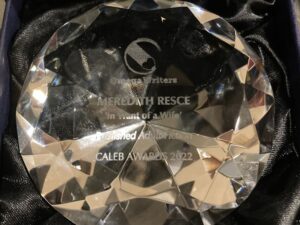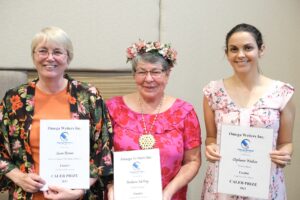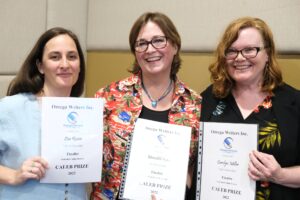(Seeking Simplicity) (Tyndale’s Treatise)
I recently spent all day in our
school library. Incredible. Surrounded in books. Inspirational. Perhaps a
little daunting. So much to read. So many narratives to prioritize. So much
learning. So many ideas, opinions, facts, truths, and stories. So many books
and authors who have put into print what was in their imagination. Dreams.
Hopes. Heroes. Works of love, life, and learning. All this work produced,
published, printed. I sat there - as host of our network gathering of Chaplains
and Youth Workers - I was distracted by all these thoughts and more. It is a
very chaotic, deeply complex, wonderful, but often very challenging world. The
complexity of navigating the enormity of understanding made me gasp.
How can an
average person today reckon with what is important, what is life giving, what
is truth?
I sat surrounded with books. I
was immersed in my cerebrations, a celebration of seminal significances. I
ruminated about all that script, imagined writing it all, imagined needing to
hand write it all, remembered Gutenberg, and remembered the printing of the
bible and its dissemination to the masses and the pioneering of mass printing
for other major publications and future literature as well. The printing press
played a key role in the advancement of the Protestant Reformation, the
Renaissance, and the Age of Enlightenment. Making knowledge contained in books
and literature readily available and affordable for the general population for
the first time. This contemplation, in turn, lead me deeper in my thoughts.
 |
| Bible Translator in Israel |
I had recently also been drawn to
taking another look at William Tyndale because of his standing up to a system
that was threatened by their loss of control. In 1535, after several years as a
‘wanted man’ Tyndale was arrested, and jailed. In 1536, he was convicted of
heresy and executed by strangulation, after which his body was burnt at the
stake. Tyndale’s crime was the translating of the bible into common English for
the common people. Tyndale recognized the abuses that came from a corrupt
system, and uneducated clergy who knew little about the Word of God, and even
less about the Latin verses that they recited each week. His mission was to
provide people access to the truths of the bible for themselves. His famous
tenet resounded and framed his mission:
“I will cause a boy who drives a plough
to know more of the scriptures than the pope”.
Tyndale was convinced that the
Bible alone should determine the practices and doctrines of the church and that
all believers should be able to read the Bible in their own language. Because of the influence of printing and a demand for Scriptures in the
vernacular, William Tyndale worked on a bible translated directly from the
Greek into everyday (accessible) English. Perhaps Tyndale’s greatest achievement was the ability to create a balance
between the needs of scholarship, simplicity of expression, and literary
gracefulness, all in a uniform dialect. The effect was the development of an
English style of Bible translation, that was to serve as the model for future
English versions for hundreds of years.
.jpg)
When
Tyndale first translated his New Testament, the English language was thought of
as weak and unfit for Holy Writ. Tyndale’s work proved that it was however rich,
dramatic, and colourful; that it was fit to communicate God’s Word, and worthy
of furtherance. It has been expressed that our English language and
accompanying literature would not have become the powerful medium it is to this
day without Tyndale’s legacy. Tyndale had a burning
passion to see the common person read God’s unadulterated, de-barnacled Word
and he did something about it. At the time of his death, 18,000 copies of his
New Testament had been printed. The common English-speaking person had access
to reading the scripture. Further to this, in fulfilling his mission, Tyndale opened
for the translation of the bible into the divers and diverse languages of the
world. To date The United Bible Societies and Wycliffe Bible Translators report
that the Bible, has been translated (in whole or part) in
more than 3,324 languages (including an increasing number of sign languages),
including complete Old or New Testaments in 2,189 languages, and the complete
text of the Bible (Protestant canon) in 804 languages. Wycliffe Bible
Translators also estimate that there are currently around 2,584 languages which
have active Bible translation projects (with or without some portion already
published). As Tyndale’s mentor Erasmus projected:
"Christ desires his
mysteries to be published abroad as widely as possible. I would that [the
Gospels and the epistles of Paul] were translated into all languages, of all
Christian people, and that they might be read and known."
This is simply
happening.
Tyndale not only gave access for
readership. He also gave access to revolutionary ideals through particular
words and how he translated them. The choice of words can also be theologically
loaded. There were 5 words of note that catalyzed his influence and the
reaction that lead to his martyrdom. Tyndale’s translation was carefully
phrased to state the perspective of what he could gain from the original Greek
and Hebrew to bring meaning in the common English of his day. In several
notable cases, Tyndale deliberately chose to render words that had a long
legacy among the religious institutions with new terms that Catholics found offensive. For
example, he used “congregation” instead of “church,” “elder” instead of
“priest,” “repentance” instead of “do penance,” and “love” instead of
“charity.” Tyndale’s English translations of these words were more accurate
translations of the Greek terms, but they differed from the familiar Vulgate
upon which much Christian theology had been based. These terms are loaded: “do
penance” had sacramental implications rejected by many protestant reformers—whereas
“repentance” more closely reflected an act that could be done by an individual
before God without the need of the church. These changes were offensive to the religious hierarchy and were heavily criticized by many.
It was because his translation not only armed
people with an opportunity to read scripture, but it also gave value to semantics
of principles given through the use of these individual words that the population
had access to truth. As I reviewed this article, I considered what word might
encapsulate the themes I have been giving illumination to. “Access” was my
working concept.
 |
| In the School Library |
The library that began all these
musings gives access for our students to a whole range of topics. Gutenberg gave
people access to a printed form of the scripture (in Latin). Tyndale gave
access for everyday people to be able to read the scripture in their own
language; and to understand deep theological and spiritual concepts by semantic
relevance and with academic integrity. The power of effective translation and
exegesis to give people access to stories and truths often gets overlooked.
It’s either not given the prominence it demands, or worse it’s an afterthought.
The truth is translation is far more important. In the Global Economy of today’s
interconnected world, effective translation is an asset. It doesn’t matter
which industry you’re in, whether it’s ministry, politics, e-commerce, iGaming,
finance, science, sport, multimedia, or relationships talking the language of
your customers or connections effectively is essential. Like Tyndale some of the
crafting of translating ideals in words needs to be way simpler than what we often
do. If you turn to read pieces translated or written by Tyndale, (either in his
prose writings or his Bible translations) you enter a different (more easily
accessed) world populated with short words and sentences that evoke images of
real life. In this world you find light, not illumination; eat, not ingest;
grow, not cultivate; burn, not incinerate.
I think all of this has relevance
to me as a writer… for each of us as writers.
What I simply want to say is ………
That my main point is: If you
want to say something so your audience can access it (understand it), keep it simple.
When you say something, say it
simply.
My work as a school Chaplain has taught me that.
In our world today, with all its complexities, absurdities, arguments, debates, disharmonious divisiveness, and discombobulations that distract us from some of the simple truth, we need to embrace again the simple pleasure and peace gained by some unostentatious communication and living.
So sometimes (often) - in our writing- using a simpler phrase or word is even more effective to get your message across. This resonates for how we live our lives too (that’s a message for another article, but it is worth introducing here).
“Summing it all up, friends, I’d say you’ll do best by filling your minds and meditating on things true, noble, reputable, authentic, compelling, gracious—the best, not the worst; the beautiful, not the ugly; things to praise, not things to curse. Put into practice what you learned from me, what you heard and saw and realized. Do that, and God, who makes everything work together, will work you into his most excellent harmonies.” (The Message translation Philippians 4:8-9).
When I am distracted by divers discourses, I am challenged to come back to the basics of life lived well.
As Corn Flakes expressed back in my childhood:
“The simple things in life are often the best”.
























.jpg)

.jpg)
